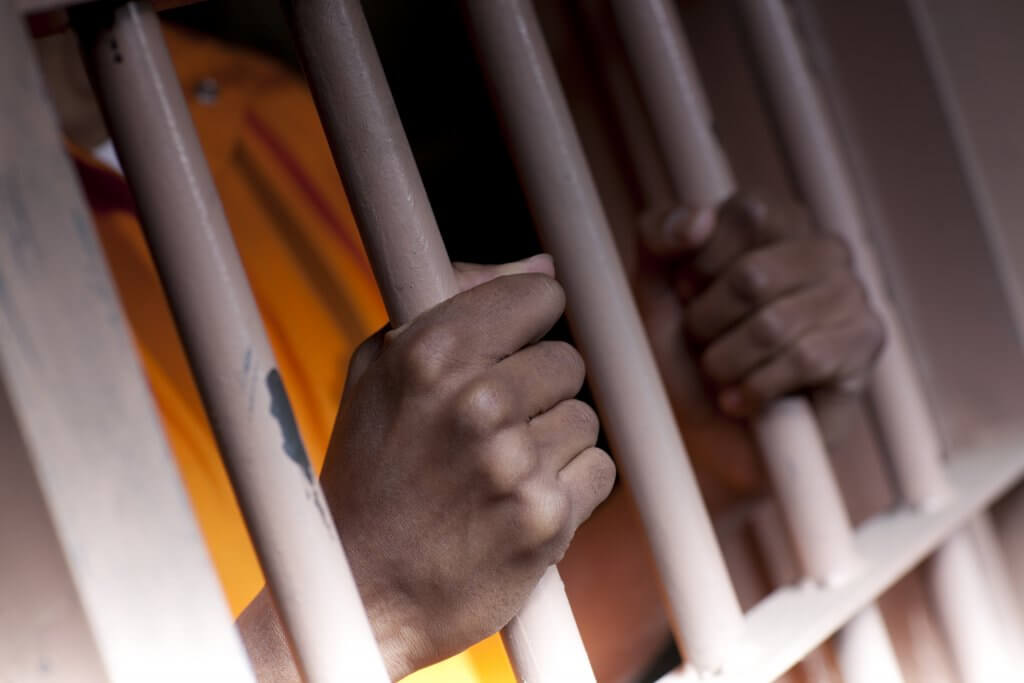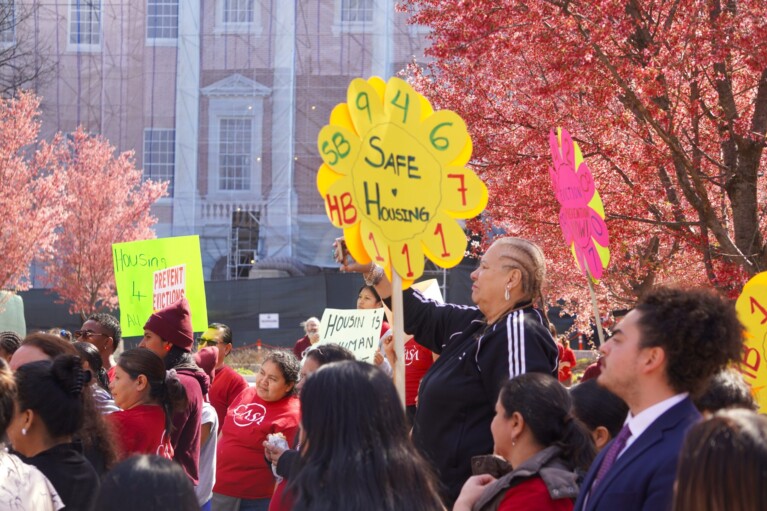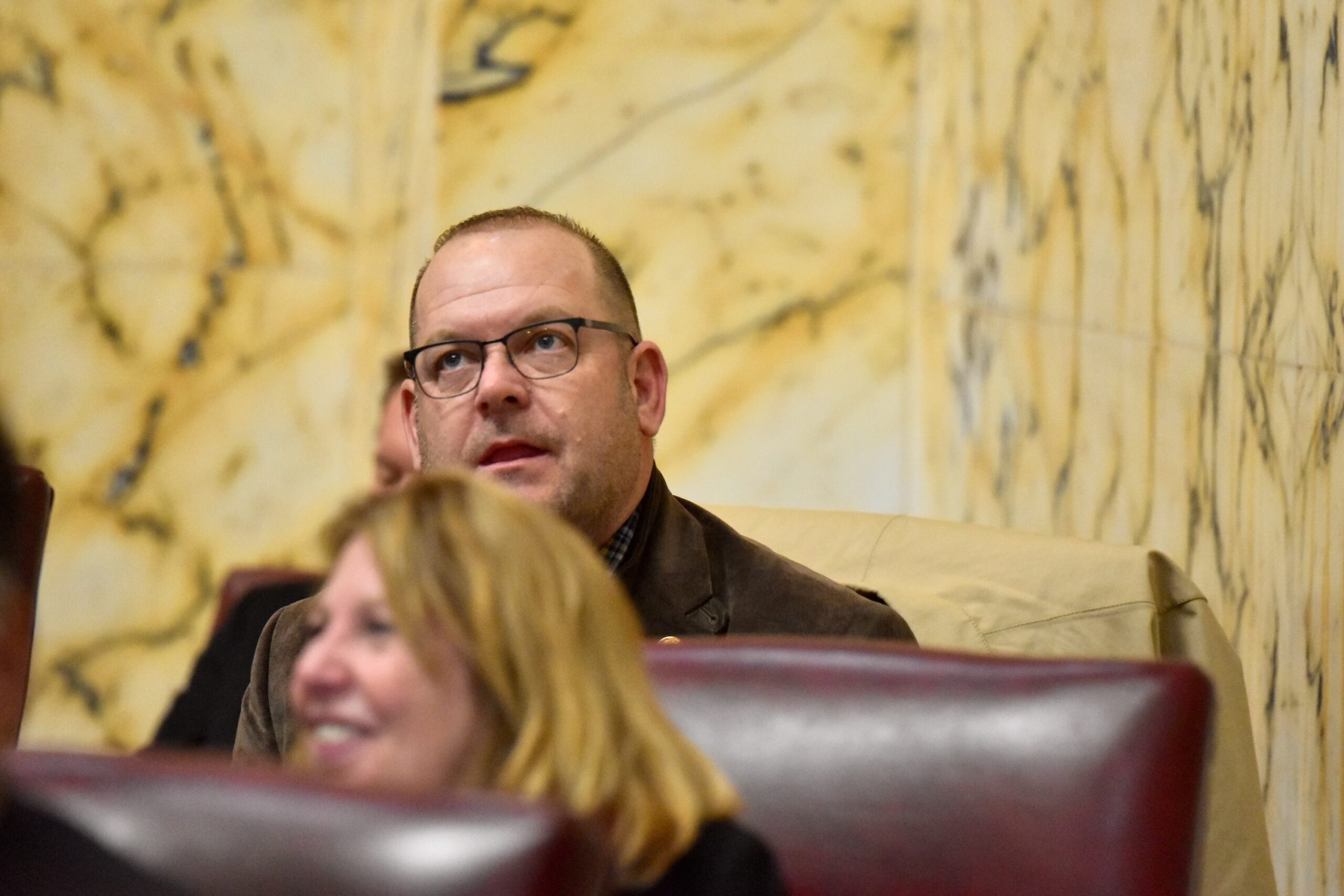Sen. Jill Carter: Md.’s Opportunity to Move From the Worst to the Best

COVID-19 has prompted a reckoning in Maryland.
Very few facets of our society are more in need of reform than our state’s broken criminal justice system. Regrettably, Maryland has earned the dubious distinction of being the worst practitioner of mass incarceration in the nation — locking up the highest percentage of Black people, and for longer periods of time, than any of her sister states. The system’s disproportionate use of incarceration has heightened a crisis in the Black community — a community that suffers higher rates of COVID-19 infections and related deaths.
Jails and prisons, which warehouse large numbers of people who suffer chronic health conditions at minimal cost, are by their very nature breeding grounds for infectious diseases. The pandemic created the urgent imperative to refashion policies for pretrial and post-conviction release in an effort to depopulate state prisons, local jails, juvenile detention centers, and commitment facilities across the state to mitigate the spread of the novel coronavirus. Our moral imperative is to continue and expand upon these policies and carry them forward into a post-COVID-19 world.

Sen. Jill P. Carter (D-Baltimore City)
In May 2020, Sen. William C. Smith Jr., chair of the Senate Judicial Proceedings Committee, created the Courts & Criminal Justice System Workgroup and appointed me chair. Other members of the workgroup were Sen. Jeff Waldstreicher (vice chair of the Judicial Proceedings Committee), Sen. Michael J. Hough, Sen. Susan C. Lee, and Sen. Justin Ready. (footnote Sens. Hough and Ready disagree with each and every recommendation in our report).
Due to various measures taken by the courts, local jails, prisons, prosecutors and public defenders, numbers are down across the board for Marylanders being held in custody. This took months of hard work and compromise. All stakeholders demonstrated courage and willingness to rethink the fundamental notion of incarceration as a public health crisis which served to exacerbate the world’s coronavirus health crisis.
This is an encouraging new beginning. Still, more must be done.
Recently, I received a call from Barbara, a 41-year-old inmate at the Maryland Correctional Institute for Women (MCIW). She is dying of Stage 4 ovarian and peritoneal cancers.
Barbara is transported bi-weekly from MCIW to medical facilities for chemotherapy and some testing. Not only does each trip present greater opportunities for contagion to be introduced into the prison, but according to Barbara, each trip causes her incalculable trauma and costs the state upwards of $3,000.
Twice a week, Barbara is moved from her regular housing unit to “isolation” to comply with quarantine protocols. She is then taken to the sally port and loaded into the transport vehicle, admitted into the treatment center, and upon return, again placed in quarantine isolation. Barbara is dying and, in her current state of fragility, poses no threat to anyone other than her potential to spread, or contract, the virus inside prison walls.
Because jails and prisons are not conducive to social distancing, quarantine isolation is akin to solitary confinement, which has been likened to torture, in some instances, and proven to have long-term psychological impacts on individuals subjected to it.
In recognition of our duty to stem the tide of infections among detainees, prisoners, and the staff that covers and cares for them, our workgroup recommendations are designed to ensure best practices for public health and safety inside and outside prison walls. All stakeholders must continue identifying vulnerable and low-risk inmates and work toward their release to further decrease the threat of infection to other prisoners and corrections staff.
Members of the workgroup urge all jails, prisons, and other detention facilities to enforce social distancing, while allotting inmates optimal time outside of their cells, and providing free telephone and video communications with family members.
They must continue universal testing, PPE usage and free distribution of PPE and sanitation supplies to all inmates. Transparency must be maintained through frequent publication of testing, infection, and population data.
The workgroup will continue to meet as needed to ensure that depopulation and transparency policies continue throughout the COVID-19 pandemic and beyond, and to monitor their progress.
During the 2021 session, the General Assembly must finally pass legislation to allow the state parole commission to be the final arbiter of inmate release and not the governor, who has served as an impediment to the release of eligible inmates through every administration and during this critical period.
There has been no increased harm to society from the thousands already released by The Department of Public Safety and Correctional Services (DPSCS), or the 200 lifers released since the 2012 Unger decision on mass incarceration. But, the workgroup will continue to study and monitor recidivism among the newly released population.
Maryland has an extraordinary opportunity to move from the worst to the best — from being a leader of mass incarceration to becoming a leader of decarceration. To do this, depopulation and transparency policies incubated during COVID-19 must be continued, expanded and monitored.
The workgroup envisions a post-COVID criminal justice system that favors citation in lieu of arrest, pretrial release over detention, early dismissal of unsubstantiated cases, comprehensive and robust pre-trial services in every jurisdiction in the state, reliance on community detention where needed, and a streamlined release of low risk and vulnerable individuals.
— JILL P. CARTER
The writer represents Baltimore City in the Maryland Senate, where she is chair of the Courts and Criminal Justice System Workgroup.




 Creative Commons Attribution
Creative Commons Attribution